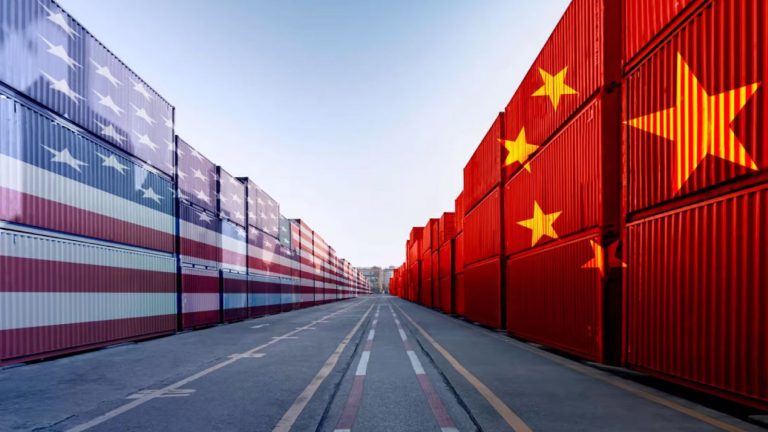With GDP falling 0.9% in the second quarter of this year (a strong signal of recession, however the Whitehouse spins it), the Federal Reserve hiking interest rates up 0.75 percentage points for the second time in a row, and consumer prices rising at a rate not seen since 1981, it’s fair to say: The American economy is in horrendous shape.
More economic turmoil seems certain, but it does not have to be our fate. One step our politicians can take to allay some of our pain is to end the tariffs on China.
U.S. consumers and our consumer technology industry have likely paid well over $30 billion in tariffs since former President Trump started a trade war with China in 2018. The tariffs on Chinese technology raised the prices of many of the technologies we use everyday: routers, cables, computers, cameras, household appliances and more. And like all tariffs, they have cost the U.S. jobs—so far, an estimated 245,000 of them. Tariffs are hurting us.
However, China is a bad actor on the world stage, with Uyghur gulags and imperialist ambitions. Don’t we have a moral obligation to keep the tariffs and shoulder the economic burden?
In a perfect world, yes we do. But in politics, especially in foreign policy, sometimes our political leaders have to make tough, pragmatic decisions for the sake of the common good. The Allies did have to team up with the Soviet Union to win World War II, afterall.
Trade with China is not only pragmatic, it’s also a matter of national security. Chinese firms supply over 90% of US antibiotics, particularly 70% of acetaminophen and nearly half of heparin. And 80% of the basic ingredients in U.S. drugs are also imported from China. If tensions between our two countries were to heat up, China cutting us off from their drugs could be a matter of life or death for many Americans.
And yet, our dependency on China did not shrink all that much after almost 4 years of Trump’s tariffs. According to a report by the Consumer Technology Association, our imports of Chinese tech products impacted by the tariffs decreased by 39%, and those not impacted increased by 35%. That is a 4 percent decrease in dependency. Despite the good intentions of many who supported Trump’s tariffs, it appears that they have done nothing but harm our economy and lower our dependency at the margins.
One good thing that came of the tariffs was increasing our trade by significant margins with countries exporting the same products. U.S. imports from Taiwan shot up 147% from $15.7 billion in 2017 to $38.8 billion in 2021. U.S. trade with Vietnam rocketed 241%, from $7.7 billion to $26.1 billion in that time period. Trade doubled in South Korea, saw a 56% increase in Thailand, had a 22% increase in both Mexico and the EU, and a 38% increase in Malaysia.
The U.S. should continue to trade more with other countries when possible. But at the moment, times are hard. As recession looms, it’s time for U.S. lawmakers to consider which is the worse threat: trade with China? Or an economy in shambles.
The U.S. does need to expand trade agreements with other countries, but the transition away from trade with China doesn’t need to happen all at once. Tariffs are immediate solutions that always cause more problems than they solve. Let’s get rid of them.














Add comment